“These were the best three days of my life – with the babak [Crimean Tatar language], daddy!” says through tears Safiye, the daughter of Crimean Tatar citizen journalist Remzi Bekirov, who is serving a 19-year sentence in Siberia for allegedly organizing a cell of the alleged terrorist organization Hizb ut-Tahrir. However, as human rights activists are convinced, the real reason for the massacre of Bekirov was his articles in the publication Grani.ru about high-profile cases against Crimean Tatars.
Remzi’s wife, Khalide, and his three children traveled 5,500 kilometers from the occupied Crimea to the Republic of Khakassia to meet her husband and father.
“In Crimea, Safiye counted down every day and every hour until our trip to Siberia to her beloved father,” says Khalide. “Her countdown looked like this: 5 days, 4 days, 3 days, 2 days, 1 day, 10 hours, 9 hours, 8 hours… That’s what Crimean childhood is like.”
Over the six years that Remzi has already spent in captivity, he has changed a lot.
“Yesterday, I was looking at the photos from the meeting and trying to see Remzi in them – our big, kind bear, but he’s not there,” notes Remzi’s colleague and family friend Mumine Saliyeva. “I wanted to shout to the whole world again: ‘Get him out of there!’ But a cold mind brought me back to reality. A few years ago, when Remzi was being transferred from the Krasnoyarsk Krai prison to VK-33 in Abakan, the guards even watched him in the toilet. He is steadily transferred to a detention center and harsh conditions of detention, preventing prayers, limiting access to more or less adequate food. He has lost weight beyond recognition, as described in books about the torments of prisoners in the most terrible concentration camps in the world.”

Journalists behind bars of russian terror
“People with the ‘PRESS’ label are not combatants, therefore they cannot be taken prisoner. But in the case of russia… You understand everything yourself. There is no need to talk about observing the rules of war,” emphasizes Yaroslav Yurchyshyn, the chairperson of the Verkhovna Rada of Ukraine’s Committee on Freedom of Speech.
According to the National Union of Journalists of Ukraine (NUJU), 28 Ukrainian civilian journalists are currently in russian captivity. The conditions of detention are no better, and often worse, than those of Remzi Bekirov. For some of them, captivity became a long-term ordeal, and journalist Victoria Roshchina, unfortunately, died in captivity.
Oleksii Bessarabov, a Ukrainian journalist and political analyst, who was detained by the FSB on November 9, 2016, was subjected to electric shock torture. Volodymyr Dudka, a former Ukrainian military sailor and political analyst, was also subjected to similar torture. Asana Akhtemov, a Crimean journalist and correspondent for the newspaper Avdet, was also subjected to torture and psychological pressure after being detained by the FSB on September 3, 2021.
Particularly cruel conditions prevail in the most famous among human rights activists, Remand Prison 2 in the city of Taganrog, which has become a kind of “main rear base” for the detention of Ukrainian prisoners. It was there that Ukrainian journalist Victoria Roshchina was held. According to the investigation of the international project “Victoria Project”, at least 15 Ukrainian citizens died in this Remand Prison alone due to torture and conditions of detention.
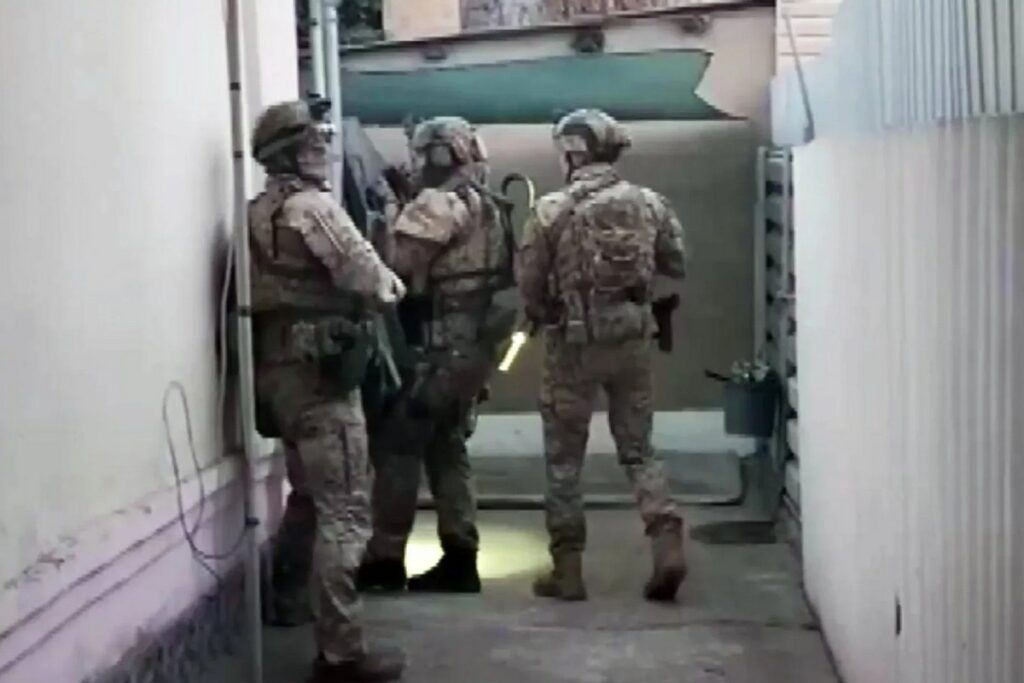
Crimean Tatar citizen journalists have faced particularly harsh repression. Most of them are accused of involvement in the Hizb ut-Tahrir organization, recognized as “terrorist” in russia. Marlen (Suleiman) Asanov, a photographer and popularizer of Crimean Tatar culture, was sentenced to 19 years in prison in a maximum-security colony. Due to the conditions of detention, he often falls ill.
Server Mustafayev, a human rights activist and coordinator of Crimean Solidarity, was sentenced to 14 years in prison. According to him, he was systematically deprived of his personal belongings, including the Koran, and denied adequate medical care.
A tragic situation developed with a group of Melitopol journalists arrested on August 1, 2023. Heorhii Levchenko, Yana Suvorova, Vladyslav Hershon, Oleksandr Malyshev, and other employees of the Telegram channel, Melitopol is Ukraine, were accused of terrorism, espionage, and collaboration with Ukrainian special services. In early September 2025, russian courts sentenced Heorhii Levchenko to 16 and Vladyslav Hershon to 15 years in prison.

Medical care in russian prisons is practically absent, which leads to a critical deterioration in the health of imprisoned journalists. Timur Ibragimov has a disability and an eye implant that needs to be replaced for a long time, but he does not receive medical care. Amet Suleymanov has a serious heart condition. Doctors recommend that he undergo heart valve replacement, but he is being held in conditions that exacerbate his illness. Iryna Danylovych, a Crimean nurse and citizen journalist, suffered a stroke and is losing her hearing, and has been on a hunger strike due to the lack of medical care.
The detention of Ukrainian and Crimean Tatar journalists in russian prisons is a gross violation of international humanitarian law and the Geneva Conventions. The systematic use of torture, denial of medical care, isolation from the outside world, and falsified trials demonstrate a targeted policy of terror against media representatives.
“The Kremlin continues to ignore all international conventions by holding Ukrainian media workers in its prisons,” says Sergiy Tomilenko, the President of the NUJU. “These are direct violations of international law. Our colleagues were imprisoned simply for doing their job – covering the truth about the russian invasion. The NUJU demands from international partners tougher sanctions against Moscow to release all arrested media workers.”
The demand for the immediate and unconditional release of all journalists imprisoned for performing their professional duties was expressed in a recent statement by the NUJU governing bodies and in the European Federation of Journalists (EFJ) resolution initiated by the NUJU, dated June 3, 2025.
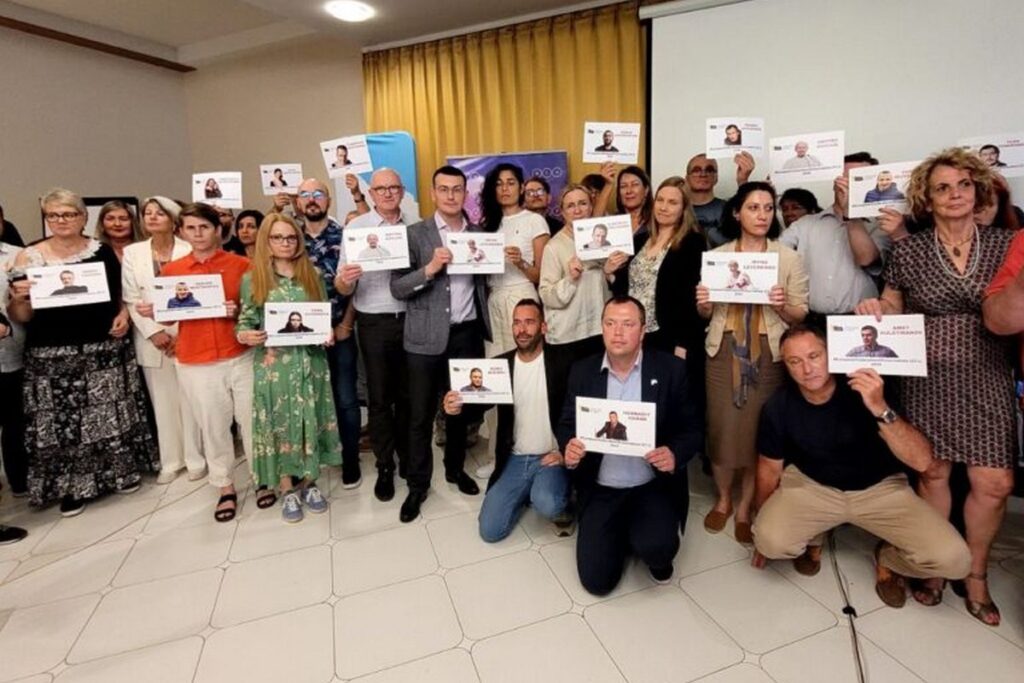
Life in Waiting: How Families of Prisoned Journalists Survive
When a journalist is taken prisoner, his family finds themselves facing a challenge that cannot be prepared for. Suddenly, you have to learn to live in two worlds at the same time: continuing your daily life here and trying to maintain contact with your loved one there, behind bars, thousands of kilometers from home.
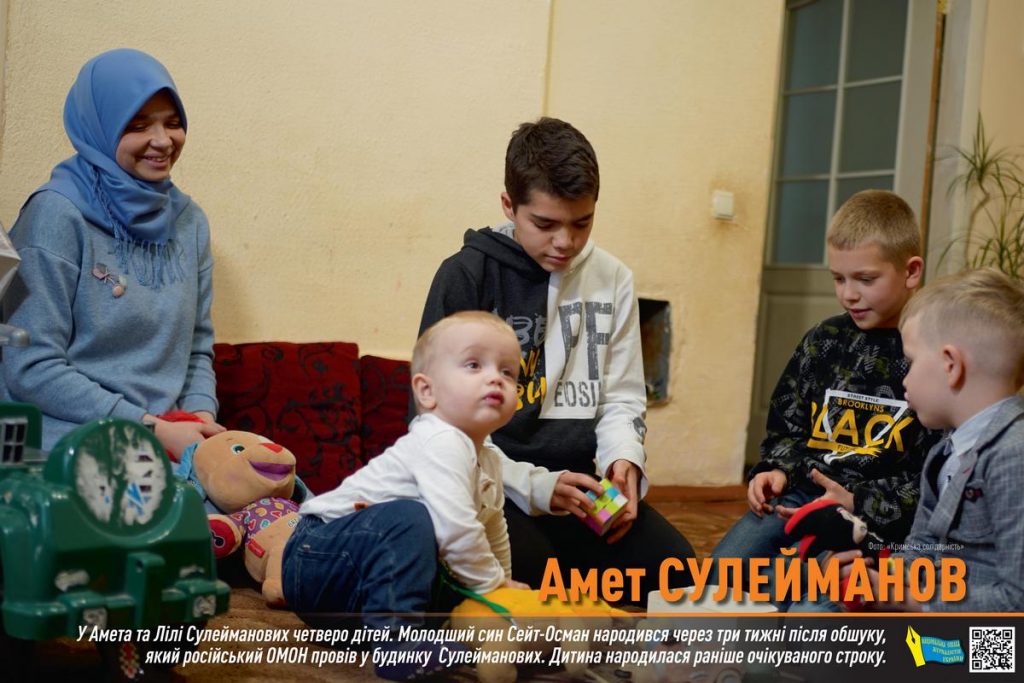
According to data collected by the NUJU, the largest share of family budgets – a third of all expenses – is spent on legal support. Eight families are forced to hire lawyers in the russian Federation. This is not a luxury, but a necessity: without professional legal protection, imprisoned journalists remain defenseless against the repressive machine.
For many families, these costs are unaffordable. Some families are forced to save on everything to raise money for a lawyer. Sometimes they have to turn to charitable organizations or relatives for help.
Nine families regularly send parcels to prison. It is very expensive. Medicine for heart patients, warm clothes, food – all this needs to be carefully planned, packaged, and sent, often without knowing for sure whether the parcel will reach the addressee.
The situation with medical supplies is particularly painful. The wife of one of the prisoners says that she sends medicine every three months. Another family spends almost all of their savings on special medicines and food for the prisoner.
The restrictions are strict: in a high-security colony, it is allowed to send a parcel once every two months. Families adapt to these rules, trying to make the most of every opportunity to deliver the essentials as effectively as possible.
At least five families make regular trips to visit prisoners. This is the most expensive category of expenses. The amounts spent include thousands of kilometers of roads, hotel rooms, and moving with children.
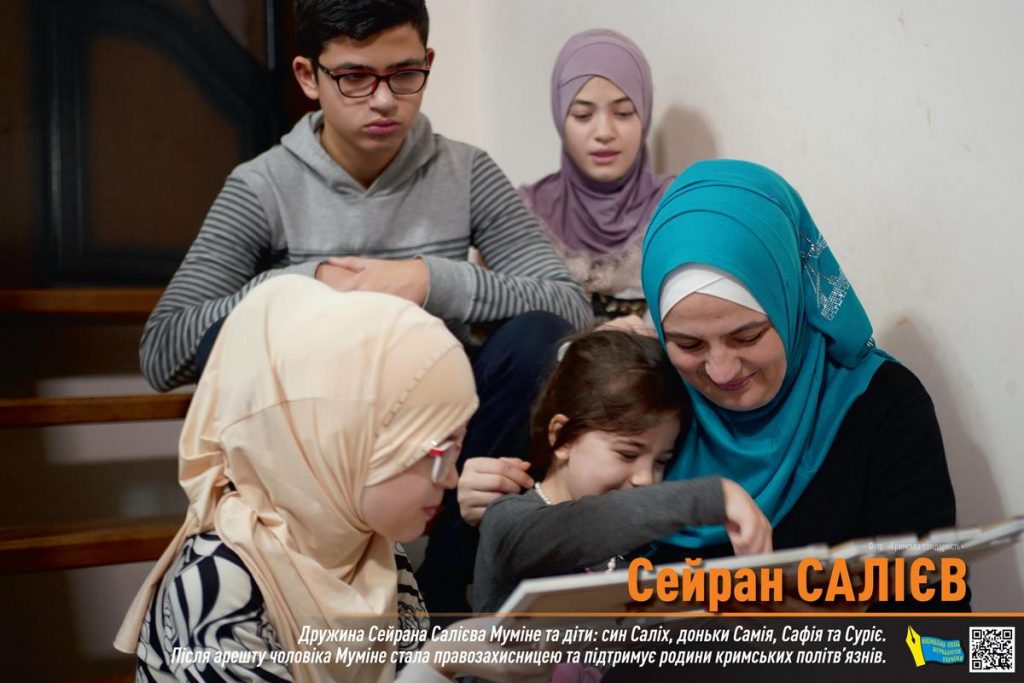
One family is forced to travel 3,000 kilometers for a short-term visit. Another travels with three children, spending a several-months’ worth of money on one trip. But for these people, it’s not an expense – it’s an investment in the psychological health of the entire family, an opportunity to see a loved one, to make sure that they are alive and well.
It’s especially difficult for families with children or sick family members to travel. The wife of one of the prisoners has a second-degree disability and requires constant medical supervision, but still travels thousands of kilometers to see her husband.
A third of families need additional support to cover basic living needs. When the breadwinner is in prison, the family’s income drops sharply, and the costs of supporting him increase.
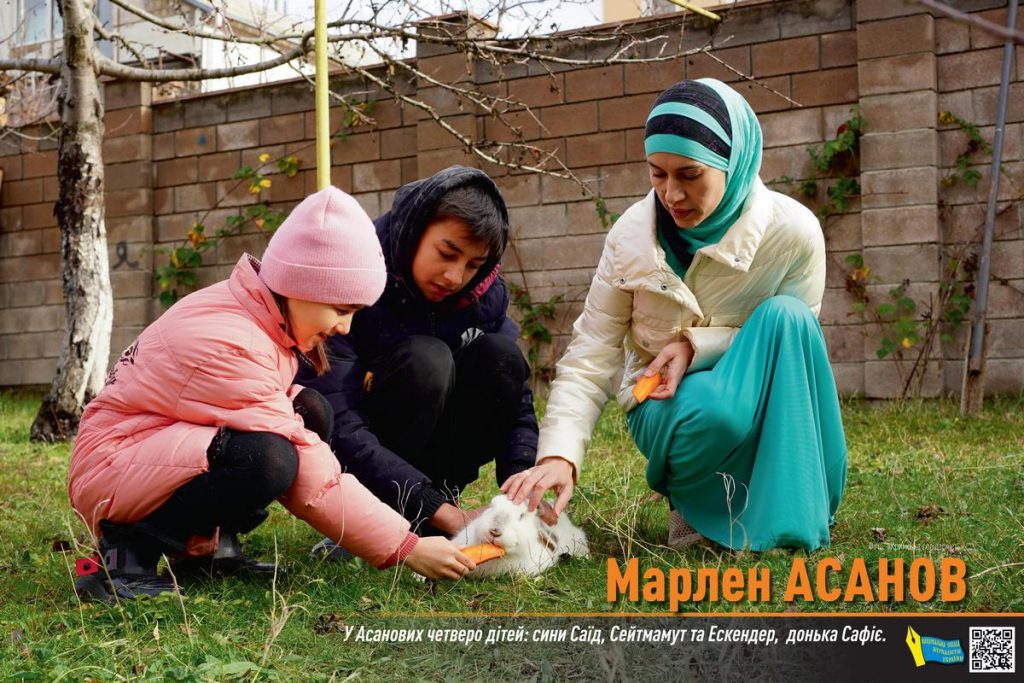
Some wives are forced to raise their children alone and work multiple jobs to save money for lawyers and groceries. Others face additional medical expenses – stress and constant tension undermine health.
Each family has its own unique story of struggle. Some of the prisoners are on a transfer, which makes any contact impossible. Some families have still not been able even to find their relatives in the system, let alone organize legal support.
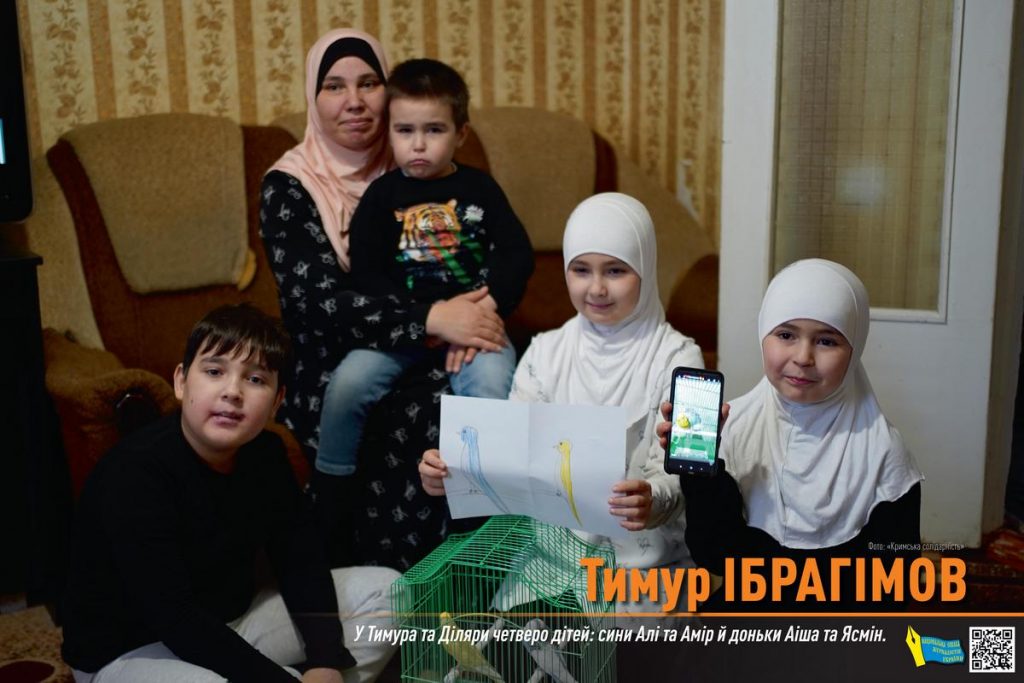
Some still cannot afford any expenses to support their relatives, either because of a lack of funds or because they are unable to establish contact with the prisoner.
Behind the dry figures of the budgets lies the daily feat of love and loyalty. These are mothers who continue to raise children alone. These are wives who do not know whether they will see their husbands alive. These are children who grow up without their parents, but with the understanding that their fathers and mothers are heroes.
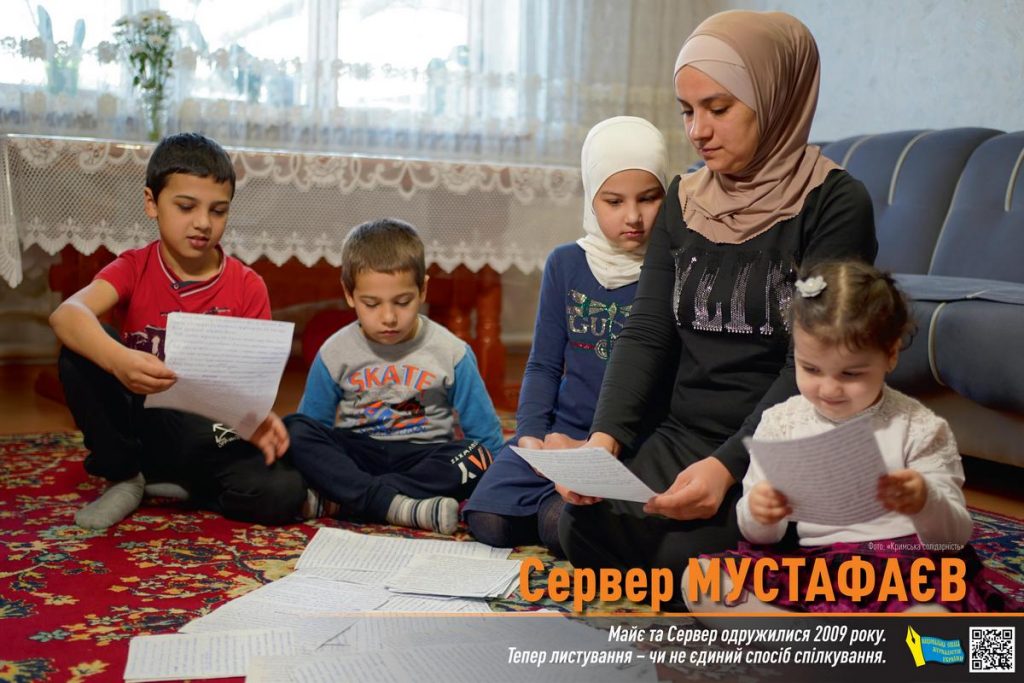
Each transmission, every call to a lawyer, every trip to see a friend is an act of resistance. This is a way of saying: we do not give up, we remember, we fight.
The families of imprisoned journalists live in a state of constant mobilization. Their lives have become a marathon, where every day, they need to find the strength to keep living, hope, and support those behind bars. And in this marathon, they need support—not only financial, but also human solidarity and understanding.
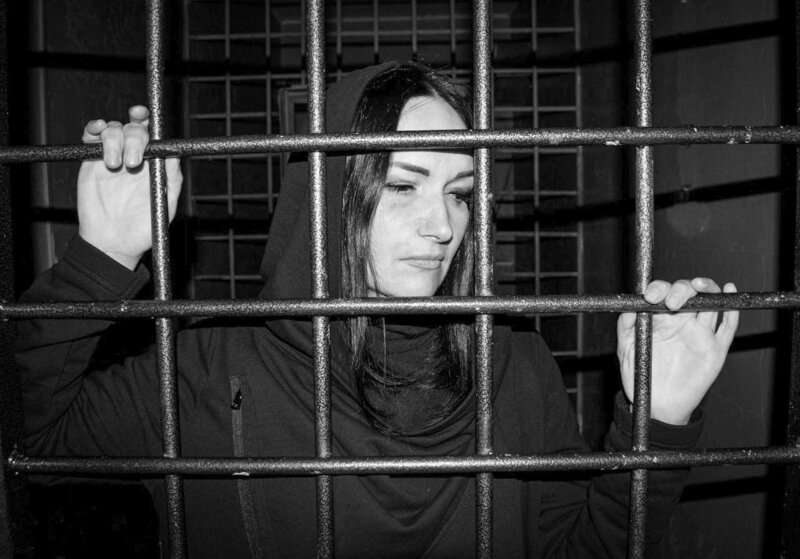
Ukrainian civilian journalists held captive by the russian federation:
- Oleksii Bessarabov, a Ukrainian journalist and political analyst, former Ukrainian Navy serviceman. He lived in Sevastopol, worked as a correspondent for the publication Hlavred, collaborated with the analytical center Nomos, and was deputy editor-in-chief of the Black Sea Security He was detained by the FSB on November 9, 2016, on charges of “preparing for sabotage as part of an organized group” and “illegal acquisition, storage of explosives and devices by an organized group”. He was subjected to electric torture. On April 4, 2019, on an obviously falsified case, he was sentenced to 14 years in prison in a maximum-security colony.
- Volodymyr Dudka, a former Ukrainian military sailor, safety engineer, and political analyst. He collaborated with the Black Sea Security He was detained by the FSB on November 9, 2016, on charges of “preparing for sabotage as part of an organized group” and “illegal acquisition, storage of explosives and devices by an organized group”. He was subjected to electric torture. On April 4, 2019, he was sentenced to 14 years in a maximum-security colony under an obviously falsified case.
- Dmytro Shtyblykov, a Ukrainian journalist, reserve officer of the Armed Forces of Ukraine, head of international programs at the Nomos analytical center, and deputy editor-in-chief of the Black Sea Security He was detained by the FSB on November 9, 2016, on charges of “preparing for sabotage as part of an organized group,” and “illegal acquisition and storage of explosives and devices committed by an organized group,” and other “crimes.” In May 2017, under duress and threats against family members, he entered into a pre-trial agreement, pleading “guilty.” On November 16, 2017, he was sentenced to 5 years in prison with service in a maximum-security colony. On November 8, 2021, when he was supposed to be released, he was arrested on charges of “high treason” and re-convicted. In total, he is to spend 19 years and six months in a high-security colony.
- Ernes Ametov, a citizen journalist, actively covered human rights violations in the occupied Crimea. He was arrested on October 11, 2017, on charges of participating in the Muslim organization Hizb ut-Tahrir, recognized as “terrorist” in russia. On September 16, 2020, he was acquitted, but the appeals court overturned the acquittal on March 14, 2022. On December 29, 2022, he was sentenced to 11 years in prison.
- Marlen (Suleiman) Asanov, a photographer, popularizer of Crimean Tatar culture, and citizen journalist, actively covered searches and trials. He was arrested on October 11, 2017, on charges of organizing a cell of the Muslim organization Hizb ut-Tahrir, recognized as “terrorist” in russia. He was sentenced to 19 years in a maximum security colony. Due to the conditions of detention, he often falls ill.
- Timur Ibragimov, a citizen journalist, actively covered human rights violations in the occupied Crimea. He was arrested on October 11, 2017, on charges of participating in the Muslim organization Hizb ut-Tahrir, recognized as “terrorist” in russia. He was sentenced to 17 years in a maximum security colony. He has a third-degree disability and has an eye implant that has long been due for replacement.
- Seyran Saliyev, a citizen journalist, actively covered searches and trials. He was arrested on October 11, 2017, on charges of participating in the Muslim organization Hizb ut-Tahrir, recognized as “terrorist” in russia. He was sentenced to 16 years in prison; the appeals court reduced the term to 15 years.
- Server Mustafayev, a human rights activist, one of the organizers and coordinators of Crimean Solidarity, and a citizen journalist. He conducted systematic monitoring of the situation in Crimea and covered politically motivated trials in the media. He was arrested on May 21, 2018, on charges of participating in the Muslim organization Hizb ut-Tahrir, recognized as “terrorist” in russia. He was sentenced to 14 years in a maximum security colony. He filed a number of lawsuits about the seizure of his Quran and personal belongings, the lack of adequate medical care, and other violations by the management of “correctional” institutions.
- Ruslan Suleymanov, a citizen journalist who covered human rights violations in occupied Crimea. He was arrested on March 27, 2019, on charges of participating in the Muslim organization Hizb ut-Tahrir, which is recognized as “terrorist” in russia. He was sentenced to 14 years in prison.
- Rustem Sheykhaliyev, a citizen journalist. He covered human rights violations in occupied Crimea, primarily “trials”. He was arrested on March 27, 2019, on charges of participating in the Muslim organization Hizb ut-Tahrir, recognized as “terrorist” in russia. Despite serious illnesses (chronic pyelonephritis, prolapse of the right kidney, varicose veins in the legs), he was sentenced to 14 years in prison.
- Remzi Bekirov, a citizen journalist, correspondent for ru. He covered high-profile cases against Crimean Tatars in occupied Crimea. He was arrested on March 28, 2019, on charges of organizing the activities of a cell of the Muslim organization Hizb ut-Tahrir, recognized as “terrorist” in russia. He was sentenced to 19 years in prison.
- Osman Arifmemetov, a writer, a winner of literary competitions, and a citizen journalist. He actively covered searches and trials, helped make programs in pre-trial detention centers for unjustly convicted Crimean Tatars. He was arrested on March 28, 2019 on charges of participating in the Muslim organization Hizb ut-Tahrir, recognized as “terrorist” in russia. He received a 14-year prison sentence.
- Amet Suleymanov, a citizen journalist. He covered human rights violations in occupied Crimea. He was arrested on March 12, 2020 on charges of participating in the Muslim organization Hizb ut-Tahrir, recognized as “terrorist” in russia. Despite a serious heart disease (doctors recommended replacing his heart valve), he received a sentence of 12 years in a maximum-security colony. He was under house arrest, and after the sentence came into effect (from April 5, 2023) – in prison. He is being held in conditions that contribute to the exacerbation of his illness.
- Asan Akhtemov, a Crimean journalist, correspondent, and assistant editor of the newspaper Avdet. He was detained on September 3, 2021, on charges of blowing up a section of a gas pipeline near Simferopol. He was subjected to torture and psychological pressure from FSB officers. Despite the obvious falsification of “evidence”, he was sentenced to 15 years in prison.
- Serhii Tsyhipa, a public figure, journalist from Nova Kakhovka, detained on March 12, 2022, on charges of espionage by the decision of the occupation “Supreme Court of the Republic of Crimea” on October 6, 2023, received a 13-year prison term. On February 14, 2024, the appeals “court” upheld this sentence. The management of the correctional facility where he is serving his sentence systematically sends the journalist to a pre-trial detention center.
- Iryna Danylovych, a Crimean nurse, trade union and public activist, and citizen journalist of the “Crimean Process”. She was kidnapped in Koktebel on April 29, 2022; held in a basement, tortured and intimidated. She is accused of manufacturing and storing an improvised explosive device. She was sentenced to 7 years in prison; the appeals “court” mockingly reduced her sentence by one month. In prison, her health deteriorated significantly, she is losing her hearing, and suffered a stroke. Due to the lack of medical care, she went on a hunger strike.
- Yevhen Ilchenko, administrator of the Melitopol Telegram channel Mylyi Topol, detained on July 10, 2022, deported to russia.
- Vilen Temeryanov, a citizen journalist who later became a journalist for the publication ru. He actively covered human rights violations in the occupied Crimea. He was arrested on August 11, 2022, on charges of participation in the Muslim organization Hizb ut-Tahrir, recognized as “terrorist” in russia. While in prison, he was subjected to forced psychiatric examination; in addition, the journalist’s eyesight deteriorated sharply, and he lost all his teeth. As of September 2025, the verdict has not yet been handed down, and the prosecutor is seeking 13 years in prison.
- Iryna Levchenko, a journalist from Melitopol and a veteran of journalism. She was detained on May 6, 2023, together with her husband, Oleksandr. What she is accused of and where she is being held is not known for certain.
- Heorhii Levchenko, an administrator of the Telegram channel RIA Melitopol. He was arrested by the FSB in Melitopol on August 20, 2023 as a “Ukrainian terrorist”, as recorded in a russian propaganda video. The “Zaporizhzhia Regional Court” of the occupiers sentenced the journalist to 16 years in prison.
- Anastasiya Hlukhovska was a journalist for the publication RIA Melitopol before the full-scale invasion. She was arrested by the FSB in Melitopol on August 20, 2023, as recorded in a russian propaganda video. Where she is being held is not known.
- Vladyslav Hershon, the administrator of the chat “Melitopol is Ukraine,” was detained on August 20, 2023. His relatives were informed about his detention two and a half months later. The “Zaporizhzhya Regional Court” of the occupiers sentenced the journalist to 15 years in prison.
- Yana Suvorova, the administrator of the Telegram channel Melitopol is Ukraine. She was detained by the russian occupiers on August 20, 2023, in Melitopol. Together with other administrators, she was accused of justifying terrorism on the Internet and espionage. According to Mediazona, she is in a pre-trial detention center in Taganrog.
- Oleksandr Malyshev, the administrator of the Telegram channel Melitopol is Ukraine. He was detained by the russian by the russian occupiers on August 1, 2023 in Melitopol. He was accused of espionage, participation in a terrorist community and a terrorist act. It is unknown where he is being held.
- Maksym Rupchev, the administrator of the Telegram channel Melitopol is Ukraine. He was detained by the russian occupiers on August 20, 2023, in Melitopol. He was accused of espionage, participation in a terrorist community, and a terrorist act. It is unknown where he is being held.
- Rustem Osmanov, a citizen journalist. He covered human rights violations in the occupied Crimea. He was arrested on March 5, 2024, on charges of participation in the Muslim organization Hizb ut-Tahrir, recognized as “terrorist” in russia. The occupation court imposed a preventive measure of detention on him.
- Aziz Azizov, a citizen journalist. He covered human rights violations in the occupied Crimea. He was arrested on March 5, 2024, on charges of participating in the Muslim organization Hizb ut-Tahrir, recognized as “terrorist” in russia. The occupation court imposed a preventive measure of detention on him.
- Hennadii Osmak, a journalist from Henichesk and former editor-in-chief of the publication New Visit. On March 12, 2022, he announced his departure from the media. On March 7, 2024, it became known about his detention for “participation in an illegal military group” (“popularization of the terrorist battalion named after Noman Chelebidzhikhan”). Sentenced to 3 years and 2 months in prison.
Maksym Stepanov
NUJU Information Service

 THE NATIONAL UNION OF
JOURNALISTS OF UKRAINE
THE NATIONAL UNION OF
JOURNALISTS OF UKRAINE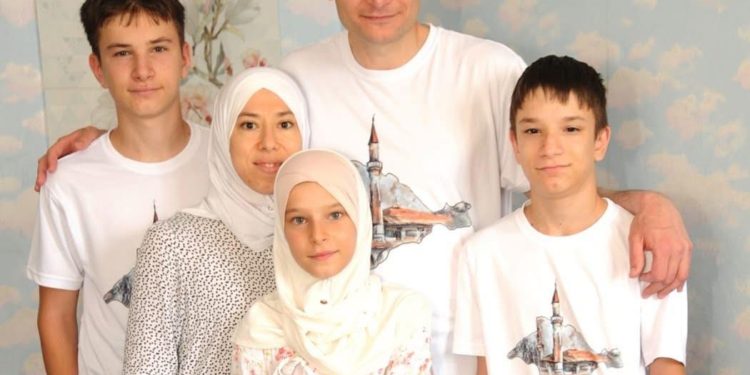
















Discussion about this post